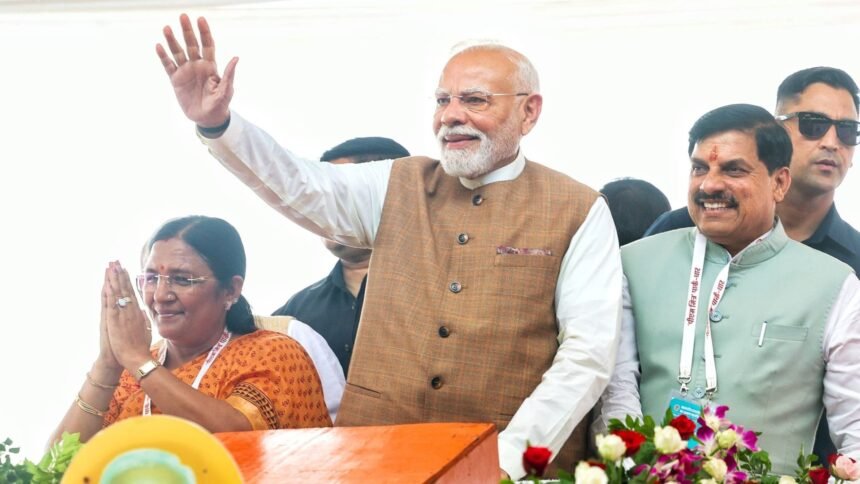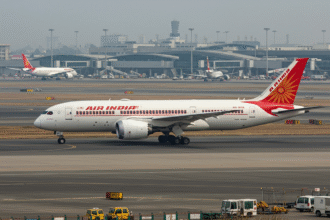Dhar/Madhya Pradesh: On his 75th birthday Prime Minister Narendra Modi laid the foundation stone of the country’s first PM MITRA (Mega Integrated Textile Region and Apparel) Park in Bhainsola village of Dhar district Madhya Pradesh. Spread over 2,158 acres the project is being hailed as a historic step to transform India’s textile sector and strengthen the Swadeshi movement.
According to The Hindu the Dhar facility is the first of seven textile parks sanctioned nationwide under the PM MITRA scheme. Designed as a “one-stop hub” for the entire textile value chain from spinning and weaving to dyeing processing and garment production the park aims to attract large-scale investment and generate employment for nearly three lakh people.
The park will feature 81 plug-and-play factory units a 20 MLD common effluent treatment plant and a 10 MVA solar power system, along with warehousing, container parking and modern road networks. Officials have also earmarked 30 acres exclusively for foreign investors with land being offered at subsidised rates. This integrated infrastructure experts say will lower operational costs for manufacturers who often struggle with fragmented facilities.
Speaking before a massive gathering, Prime Minister Modi said the initiative would not only provide fresh momentum to India’s textile exports but also empower farmers and youth.
The PM MITRA Park will give a new identity to Madhya Pradesh’s textile industry, create new employment opportunities, and ensure that cotton farmers of Malwa-Nimar receive fair value for their produce,”
he said.
Madhya Pradesh Chief Minister Mohan Yadav described the project as a “historic gift” to the state calling it a turning point for the cotton-rich Malwa-Nimar region. According to a Times of India report the Dhar park has already seen strong investor interest with industrial plots in high demand.
The Dhar PM MITRA Park is positioned as a model for the six other parks planned across India. If executed efficiently it could help India compete with textile powerhouses such as Bangladesh and Vietnam by reducing logistics costs, integrating sustainability measures and enhancing global competitiveness.















